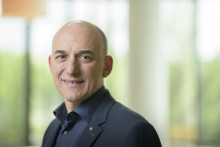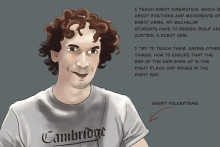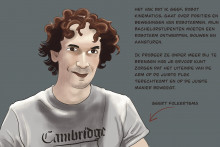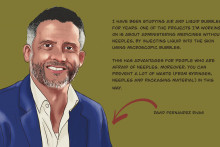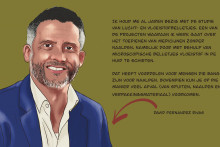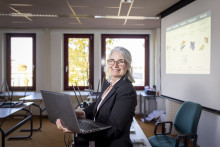Experts do not necessarily make good teachers, and excellent school teachers are almost certainly bad in academic teaching. At school, students are taught tricks, but in academia, they should learn to think abstractly, critically, and logically—skills never cultivated at school level.
This is something that CELT (Centre of Expertise in Learning and Teaching) fails to understand because they lack a true grasp of technical subjects like mathematics. Before attending university, I found mathematics dull and uninteresting. However, once I saw what mathematics truly is in academia, I realized that I wanted to become a professor. That realization marks a fundamental difference in how the subject should be approached in academia.
Learning tricks
I am currently teaching a master’s course in robotics, with eight lectures in total. I’ve had to dedicate three of these lectures to reteaching linear algebra because the way it was previously taught relied on tricks involving matrices. The students had no understanding of what linear algebra is! Linear algebra is not just about manipulating matrices. Students are treated like children, learning tricks and completing assignments with provided solutions. This trains them to pass exams, but it doesn’t teach them to engage deeply with the material. Our education system is declining because those who lack a technical or scientific background hold power over how PhD’s are instructed to teach, often reducing complex topics to mere tricks, as seen in schools.
I am astonished when I read statements like: ‘Sure, experience is important, but even years of experience mean little if you’ve done it incorrectly and aren’t self-reflective.’ It seems CELT doesn’t realize that university lecturers all hold PhDs. A PhD represents not only expertise but also a deep level of self-reflection about one’s field. Being an expert is a necessary, but not sufficient, condition for being a good educator in academia.
Unfortunately, CELT’s UTQ (University Teaching Qualification) will not bridge this gap because you cannot convey academic-level topics effectively without truly understanding the subject. You might be able to teach tricks, as is done in schools and unfortunately often now at the UT, but not in academia. Real improvement comes from experienced educators coaching and providing meaningful feedback, engaging in proper academic debates about teaching methodologies—something CELT does not prioritize and is simply not able to do because they lack domain knowledge, and that is a necessary condition for proper teaching in academia.
The Real Problem
When I encounter statements like: ‘It’s probably even better not to have content knowledge’, the real issue becomes clear. Take mathematics, for instance. It’s not about juggling numbers. As Poincaré said, mathematics is the art of giving the same name to different things - it’s about abstraction, critical thinking, and logical reasoning. Teaching such fundamental concepts requires a deep understanding of the subject, something that can’t be achieved by those without serious expertise. One cannot effectively teach mathematics without first comprehending the inherent challenges students face in learning it. Mathematics is certainly not just about ‘calculating with matrices’!
Arguments like these are why the academic preparation of our students is deteriorating every year. Students are learning tricks instead of truly understanding the subject matter. They are treated like schoolchildren, not adult as they are, and if this trend continues, we will soon have graduates who don’t grasp the core principles of their discipline. These students may learn how to solve problems using tricks, but that’s exactly what AI can do much better. The students who truly understand abstraction, reasoning, and the deeper meaning behind concepts are the ones who will be valuable to society. However, if the current approach persists, they won’t be graduating from our university. I always end my talks with my own quote: ‘Epistemological growth is not about solving a problem, but understanding ‘why and how’ to solve it, and that is what should be the core of academic teaching.
The best academic educators
In my previous opinion piece, I emphasized that quality is important—but I meant academic quality. The University of Twente is not a University of Applied Sciences, and if we want to maintain that distinction, we must uphold academic standards. We need to select the best academic educators from our community, allow them to evaluate and coach others, observe lectures, provide feedback, and guide future educators. We should not burden them with unnecessary paperwork, as is the case with the current UTQ. Only then will we improve academic teaching and focus on real content, not just tricks.
And personally, I believe that senior academics with a PhD and verifiable, internationally recognized expertise in teaching should refuse to be evaluated by individuals who do not hold a PhD in a related field; this undermines their professionalism and expertise.


